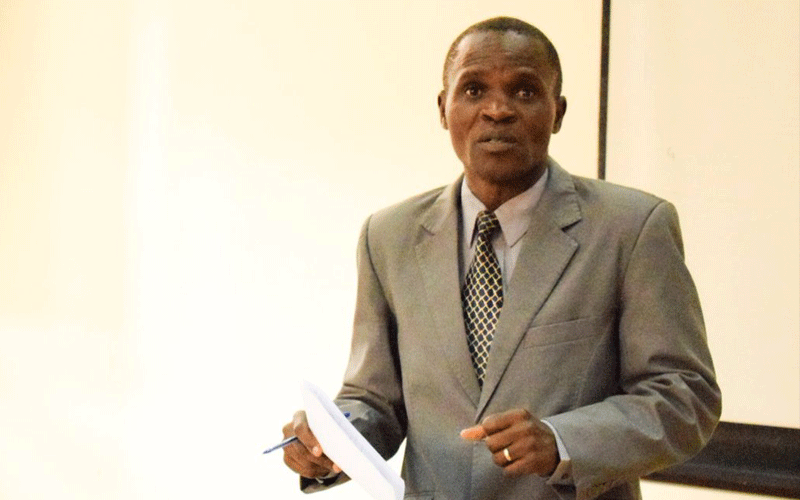Civil societies put State to task on usage of education finances
By Douglas Dindi, September 28, 2020They have tasked the government to explain expenditure of billions of money allocated to the sector in the national budget and donors, especially now that schools have been closed for the better part of the year.
Civil society organisations will track and monitor the usage of education funds either captured in the budgets or donated as grants for the expansion of infrastructure in schools and fast-tracking of online learning to ensure smooth transition to physical learning.
The non-state actors say they are concerned by the studious silence the government has maintained on issues relating to funding the preparedness of schools even as the Ministry of Education rolls out plans for an early reopening date for basic learning institution across the country.
Elimu Yetu Coalition (EYC), which organised a two-day colloquium to discuss government plans to reopen schools insisted that January 2021 was the most ideal date for school resumption and suggested that civil society groups and parents representatives have been left out in the planning process.
They contend that the government must follow up its publication of Covid-19 health guidelines on the resumption of physical schooling with appropriate funding to engineer institutions’ preparedness.
Last week, EYC national coordinator Joseph Wasikhongo demanded that issuance of health protocol guidelines for schools reopening should be backed by funds disbursement to engineer school managers to procure and prepare institutions.
“We are happy that the treasury has released Sh1.9billion for making desks for public primary and secondary schools.
Unfortunately, procurement is centralised and the funds are just a fragment of the grants received by the government.
We are monitoring to ensure that funds are properly utilised,” said Wasikhongo.
The sector is one of the biggest beneficiaries of grants during the pandemic and billions of shillings have been channeled from the national budget and donors for intervention measures in education.
First capitation
In the current 2020/21 financial year, a whooping Sh497 billion is allocated to education out of which Sh75 billion is to fund free primary and free day secondary learning, with capitation for secondary learners taking Sh59.4 billion and the remainder of Sh16.9 billion set to cater for primary pupils.
The national budget has also provided an additional Sh53 billion for infrastructure deployment in schools, part of which Sh1.9 billion was sliced for the purchase of desks.
The country’s bilateral partners have also chipped in with the Global Partnership in Education giving a grant of $11.9million (Sh1.15billion) to support innovation and online learning.
Last year the World Bank signed a four-year (2019-2023) agreement with the government to fund quality improvement in secondary schools.
And now EYC says the current academic year is wasted although there is no clarity whether the funds were wasted as well.
“We are aware the government disbursed Sh38 billion during first capitation to both primary and secondary schools.
The government remains silent on the balance, which has never been sent to schools.
We’ve had no learning in schools and so the government must come out clear on whether the World Bank funds were used nevertheless,” Wasikhongo observes.
Education Cabinet Secretary Prof George Magoha recently hinted at schools being reopened early saying the January date ‘was not cast in stone’, a prospect buoyed by new Covid-19 daily prevalent rating for September, which has hit the all-time low of less than five per cent catalysing the CS to form an education stakeholder committee to relook the earler set date.
Last week the minister unveiled a set of health guidelines for school reopening, setting the stage for prospects of October reopening.
Yet despite the debate, the government still remains silent on disbursing funds to school heads.
Vague school opening date
Africa Canadian Continuing Education Society (Access-Kenya), a member of EYC says the CS is vague on school opening date, a result that caused inertia among parents and other stakeholders who finance education in the country.
Access Kenya programme officer, Anthony Mutevani says parents and organisations that pay for fees need clarity on reopening dates to be able to budget.
“The goals keep shifting and so we are not consistent with our donors so they can plan on fees payment.
We gave a tentative January reopening date, but the goalposts keep shifting.
Students on bursaries are disadvantages and this could result in higher dropout rates,” Mutevani says.
“The government continues to issue mixed signals on the reopening date oblivious that they are affecting budgeting of education at the household level.
Already, parents are budgeting for the January reopening and suddenly you drag the date forth, the ramification will be seen in continuity with high dropout cases,” Wasikhongo says.
Kakamega county EYC chairman Vincent Mwachi says plans to reopen in October are unrealistic as learning centres remain stuck financially, schools support staff are not supported, and the ECD centres are expecting double intake.
Kakamega county quality and standards officer Akoko Kayo says the ministry is carrying out an audit of institutions to establish the level of preparedness for reopening.
We had a Transition Improvement Grant, through which the government has funded construction of classrooms to reduce congestion in secondary schools as a result of the 100 percent transition policy.
